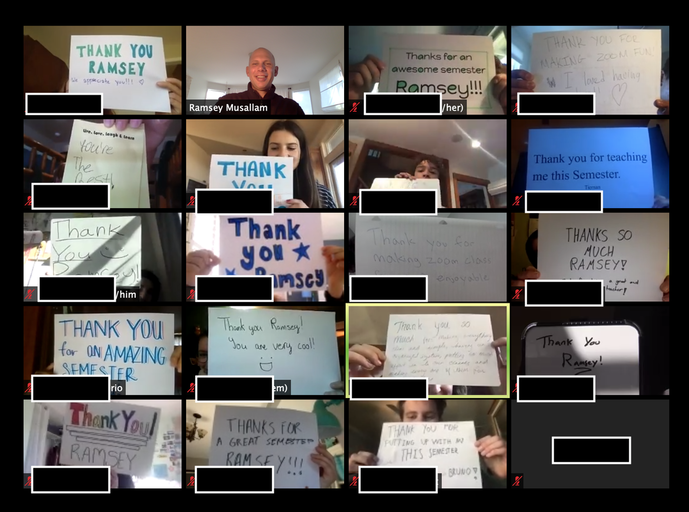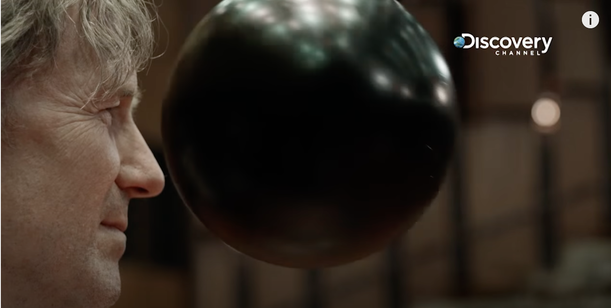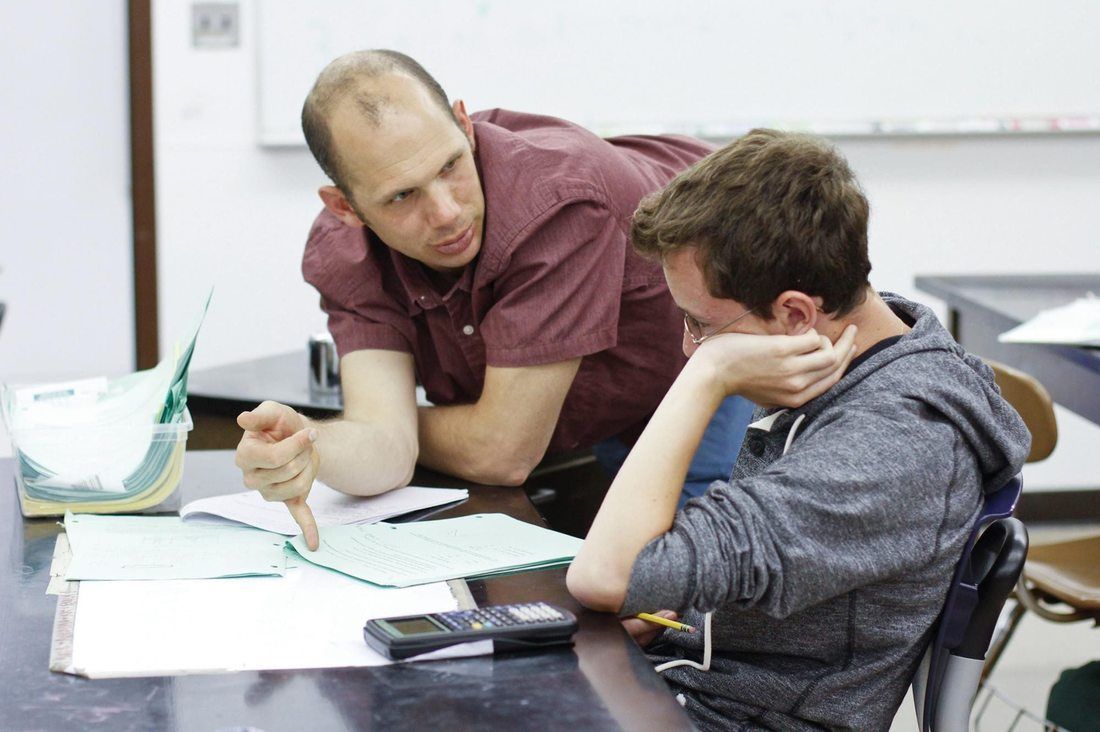|
|
|
Yesterday I was in search of some new "kitchen chemistry" labs (100% distance learning) for my students to perform in my Honors Chemistry class as we begin relating covalent bonding and molecular geometry to Intermolecular Forces.
Tired of the same activities used during my distance learning course last semester (pepper, soap, water, etc.) I was drawing a blank as to a safe, exciting, and simple activity students could do that would not require a trip to the store for parents. SERENDIPITOUSLY, the exact same day, my 3rd grade daughter had this Kiwi Crate activity delivered as part of her subscription (gift from the Grandparents!). Boom! Parchment paper, food coloring, and it as on! I then created this activity on the spot, which led to this Padlet 24 hours later. Thanks Kiwico! Moving forward I will be using Friday's to write a simple reflection on five things that worked well in the "classroom" each week (distance learning or face-to-face) This post is meant to be simple, to the point, and may contain obvious realizations about teaching and learning. I apologize ahead for any redundancy in previous posts, and feel the need to reflect on the week in a concise way is meaningful for me, and hopefully other teachers, looking for empathy, insight, or ideas. 1. Having music playing while students enter Zoom set a relaxing tone. Many students sent messages in the private Zoom chat requesting a playlist of songs I have playing. Phoebe Bridgers was the artist of choice this week! 2. Using the "File Upload" and "Quiz" feature in Google forms for students to "submit" images of work for grading created a much more efficient way to quickly assess written work. Click here for simple form example. 3. Padlet continued to be an excellent place for students to demonstrate hands-on work in my science classes. Click here and here for examples from this week's chemistry class. 4. Setting aside 15 minutes to grade each day was MUCH more effective, and rewarding, than my usual bulk grading. 5. Student excitement around videos related to Assistive Technology this week confirmed that the field is a meaningful and engaging medium for teaching engineering to young students.
This is a short post/journal entry about something that has been on my mind, and nagging at me since the beginning of distance learning.
I have noticed a shift in my teaching that occurs when I minimize student cameras while teaching in Zoom. That is, they can see me, and the screen I am sharing, but I cannot see them. Paradoxically, I have noticed that my instruction, and ability to connect with them increases. I feel more comfortable, free, and open to share knowledge in clear and structured ways. This realization has been strange, in that I depend heavily on my relationships with students during face-to-face instruction, however in the Zoom setting, seeing their faces while teaching particularly complex information seems to decrease my ability to connect via the content. My working hypothesis is that, while face-to-face instructions offers a true, human connection, a Zoom window places emphasis on facial expression. Perhaps my empathetic side is overly drawn to student facial expressions, inhibiting me from pushing through complex concepts, while I am pulled into looks of frustration, confusion, etc? When I do not see them (gallery minimized) I can push through this moment better, allowing time for students to negotiate the complexity before I jump in and "rescue" them from their perplexity, something I do naturally. In the face-to-face setting, this perplexity exists in the context of a myriad of other variables that make the relationship more simple, meaningful, and real. With only a confused face I almost feel paralyzed at times. Thus, I have been exposing the entire class during discussion/Q&A and minimizing their visibility during direct instruction. I'm not sure what I'm saying here, but I felt a need to put it into writing. I am very much looking forward to being with my students in the classroom once again. Side note, this came back to bite me once when, in the middle of a lecture where I was sharing my screen and had their cameras minimized, the students surprised me with the below. I was not responding and kind student said "Um...Ramsey, can you see us?". Ha! awkwardly caught red-handed! I just finished the audiobook for the autobiography of the legendary Physics Professor Richard Feynman. A fabulous listen, I have always been inspired by Feynman's contagious curiosity and desire to learn all things with a seemingly vicious intensity. I find myself also drawn towards a similar, addictive need, to ask questions and search for answers to things that others might find meaningless or not directly relate to vocation. Or perhaps, I'm trying to justify my late night YouTube deep dives. Either way...Feynman's spirit speaks to me and listening to his life story added an unexpected sense direction to my own midlife contemplations. Through a lens of science instruction, I was endlessly inspired by the way Feynman's own personal sense of curiosity naturally mingled into his instructional pedagogy. That is, it was clear that he deeply values the question asking process and made it clear throughout the book that questions must precede any form of direct instruction or delivery of equations. My own passion for translating individual curiosity about the world into formal lesson plans was my motivation for this TED talk I delivered in 2013. This passion for "Delayed Direct Instruction" is intrinsic to the inquiry learning cycle and its efficacy in helping students develop conceptual models for understanding is outlined in the literature. Click here for example of the plethora of research articles that underscore the importance of questions BEFORE lecture. The first 30 seconds of this clip from The Challenger Disaster, a film about Feynman's role in uncovering the the true cause of the Space Shuttle Challenger disaster, clearly demonstrates Feynman's inability to separate conceptual understanding and curiosity from instructional pedagogy. I could watch this clip all day long! Perhaps the below quote sums up the purpose of this post and its relationship to Feynman best. I read the quote as Feynman challenging educators of today to find a way, despite the myriad forms of resistance, to figure out ways to spark student curiosity in search of authentic, conceptual understanding. I think, however, that there isn't any solution to this problem of education other than to realize that the best teaching can be done only when there is a direct individual relationship between a student and a good teacher - a situation in which the student discusses the ideas, thinks about the things, and talks about the things. It's impossible to learn very much by simply sitting in a lecture, or even by simply doing problems that are assigned. But in our modern times we have so many students to teach that we have to try to find some substitute for the ideal. - Richard Feynman There is so much complaining and frustration around the use/overuse of Zoom during distance learning. Trust me,I get it...students are burnt out, I am burnt out. Zoom Fatigue is a real thing.
Keeping the above in mind, I find myself equally fascinated with the idea of going back to face-to-face teaching 100% next fall with a classroom of students who are EXPERTS in using a video conferencing platform. Kinda amazing!?! The reality of this new skill set might just open up a bunch of new opportunities for leveraging Zoom while all students are on campus. I am excited to see what this new skill set can offer. Below are a some initial ideas I have:
The above list is small (hopefully growing) but again, I am still SO FASCINATED with the fact that students K-12, all are walking around the world with the ability to video conference in their back pocket. Crazy! |
Categories
All
Archives
March 2024
|



 RSS Feed
RSS Feed